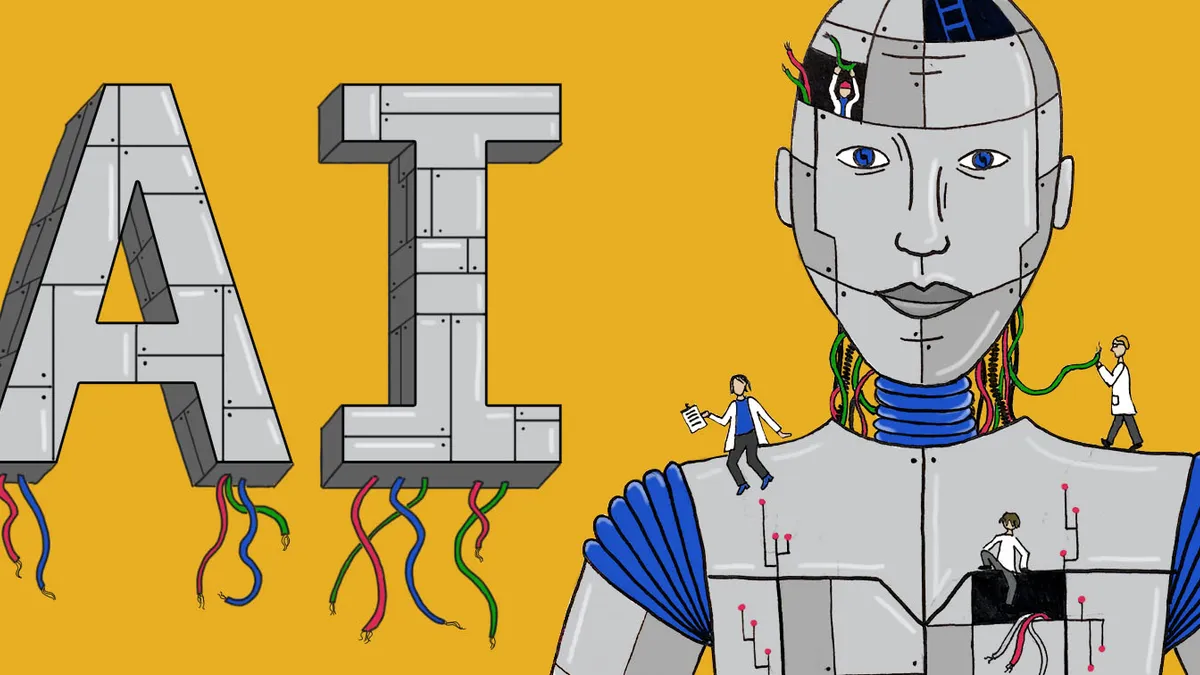LAS VEGAS — Is artificial intelligence overhyped?
That's the question James Golden, managing director of PwC Health Advisory, and Christopher Ross, chief information officer at Mayo Clinic, posed to an at-capacity education session at HIMSS18 on Tuesday.
"It's not overhyped. We have enough data," Golden said. If you have clinical, imaging, claims and genomics datasets as well as enough computing power to ask well-formulated questions, AI can help meet the healthcare industry's triple aim, he said.
"In some ways, [AI] couldn't be more hyped than it is," Ross countered, adding the hype around AI is not just in healthcare. We still don't have self-driving cars flitting around suburban streets.
However, the tools exist, Ross said. The challenge is whether the physicians will trust and adopt the technology. "At the core is, as technologists, can we look our physician partners in the eyes and make them believe [AI is] reliable," Ross said.
Trust by physicians will be key, Ross said. "One of the grand challenges [in healthcare] is physicians staying abreast of leading practices. The physicians hungry for these results are the ones that feel beleaguered," he said.
In essence, the goal of hitting the industry's triple aim gives AI a mission statement, Golden told Healthcare Dive before the session. Then, the question moves to how AI can do the work of improving quality, cutting healthcare costs and improving the health of populations.
Ross told the audience AI investment should advance at least one of the arms of the triple aim.
Once you have the mission statement, an organization can ask and answer questions, including whether an AI strategy is trying to replace, augment or improve the work of physicians, Golden said. "Those are important questions to ask even though it sounds a little silly to say," he said.
For example, with an integrated delivery network with 100 hospitals that employs 11,000 radiologists, will the system reduce the number to 5,000 radiologists as a cost-cutting measure or employ the same number with the ability to process more images, potentially increasing revenue streams?
"If you take 50 steps in the workflow and reduce it to 10 steps, isn't that a good thing?" Golden said.
For Mayo, Ross said the goal is to augment human intelligence and make tools that allow a physician to practice at the top of their abilities.
Both Ross and Golden said AI could be used to improve the life of a physician by easing workload. In theory, this could help patient outcomes downstream by fostering a long-term and enriching patient-provider relationship. And the evidence points to machines being able to do the work, Ross said.
In one highlighted study, an AI algorithm performed at least 91% as well as human physicians when tested against 21 dermatologists on the ability to identify malignant skin conditions and benign lesions. Another showed supervised machine learning could predict the status of certain tumors, serving as a non-invasive biomarker.
Machines are better at seeing and remembering things, Ross said, looking to the amount of information and data points physicians must remember.
"We're not just close. We're there," Golden told Healthcare Dive. "There's a small leftover tipping point." To him, that point will be physicians' willingness to adopt and define the use cases for themselves.














